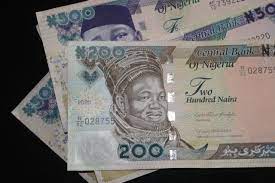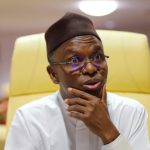Nigeria’s Debt Stock Hits N39.6tn In 11 Months – Reports
Business News, Featured, Latest Headlines Monday, January 17th, 2022
(AFRICAN EXAMINER) – The Nigeria’s total debt stock rose from N32.9tn as of December 2020 to N39.6tn in November 2021.
The Minister of Finance, Budget and National Planning, Mrs Zainab Ahmed, in her presentation of the 2022 approved budget, disclosed that the government borrowed N6.7tn between January and November 2021, according to a copy of the presentation obtained by our correspondent.
The new borrowing in the period under review consists of N5.1tn domestic debt and N1.6tn. The domestic debt, however, includes borrowing from the Central Bank of Nigeria, according to the presentation document.
In March 2021, the Debt Management Office had disclosed that the country’s total public debt stock was N32.9tn as of December 2020.
An additional N6.7tn loan means the total public debt stock would be about N39.6tn as of November 2021.
The DMO had disclosed that the country’s total public debt increased to N33.1tn at the end of the first quarter of 2021, from N32.9tn in December 2020, showing an increase of about 200bn.
In Q2 2021, the total debt stock rose by N2.4tn to N35.5tn by June 2021.
The increase continued by N2.5tn to hit N38tn by Q3 2021, which was the last figure provided by the DMO.
However, based on the minister’s presentation, there was an increase of N1.6tn from September to November 2021.
African Examiner had reported that that within the 11-month period, debt servicing gulped N4.2tn which represents 76.2 per cent of the N5.51tn revenue generated during the period.
The minister defended government borrowing and the country’s debt level, insisting the country had a revenue challenge, and not a debt problem, adding that the debt level was still within sustainable limits.
She had said, “This is to restate, that the debt level of the Federal Government is still within sustainable limits. Borrowings are essentially for capital expenditure and human development as specified in Section 41(1)a of the Fiscal Responsibility Act 2007.
“Having witnessed two economic recessions we have had to spend our way out of recession, which contributed significantly to the growth in the public debt. “It is unlikely that our recovery from each of the two recessions would have been as fast without the sustained government expenditure funded partly by debt.”
However, economic experts, including a former Deputy Governor of the Central Bank of Nigeria and former presidential candidate, Kingsley Moghalu, have countered the minister.
Moghalu had said, “There are many ways through which we can improve Nigeria’s domestic revenue situation without selling the future of our country. As to the argument that Nigeria does not have a debt problem but a revenue problem, that is mere sophistry. If you’re spending 90kobo of every one naira you earn repaying debt, you are insolvent.
“You cannot say that we have a debt-to-GDP ratio that allows you to continue borrowing. No! That is an argument for sustainable economies. You cannot be comparing Nigeria with advanced economies. We are in an economy that is still very basic.
“If you are not earning enough revenue, why are you borrowing? You are just compounding your problem. Why don’t you focus on where to get the revenue from instead of lazily ignoring that problem and just trying to survive with borrowing?
“If an individual was living a life that way, it would be a calamity. That is why Nigeria is in a calamitous situation today economically,” he said.
The World Bank had recently said Nigeria’s debt was vulnerable and costly, adding that the country’s debt was at risk of becoming unsustainable in the event of macro-fiscal shocks.
Related Posts
Short URL: https://www.africanexaminer.com/?p=72854























